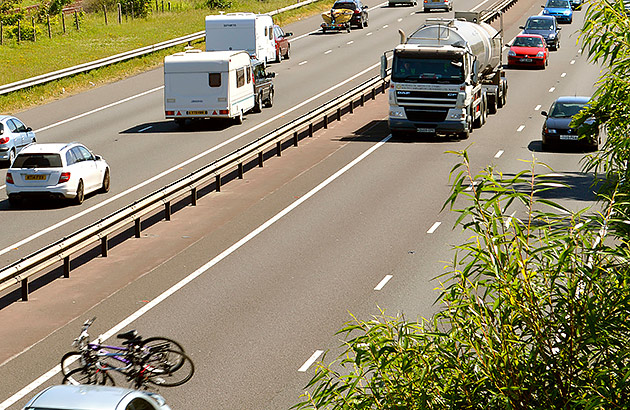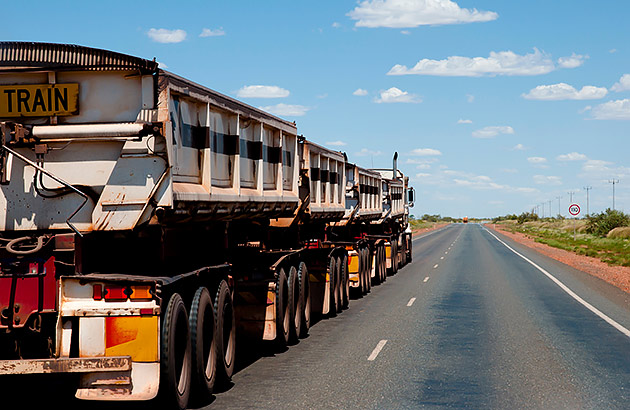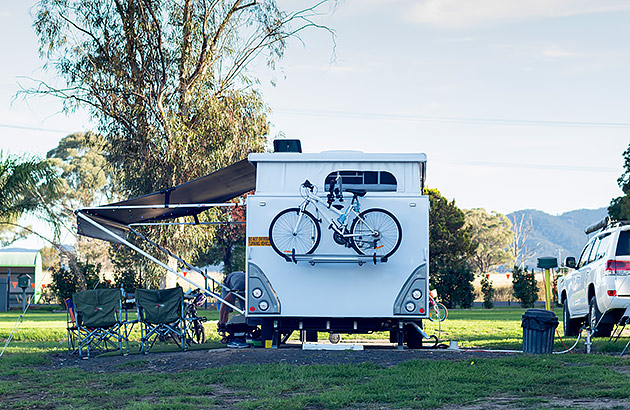Travel & Touring | Camping & Caravanning
By: Brendan Batty
You may already be the full bottle on all the official road rules and legal requirements when it comes to towing a caravan, but what about all those unwritten rules you won’t find in a manual?
There are quite a number of rules you need to know before you start towing a trailer, caravan or boat in Western Australia. For example, your speed while towing a trailer is limited to the speed limit or 100km/h, whichever is lower. You can't park your caravan on a verge or the side of the road if it's not attached to your car (in most places), and you can only turn left from a right lane if your combination length is over 7.5 metres and you have a 'Do Not Overtake Turning Vehicle' sticker on the rear lower-left corner of the van.
But amongst caravanners, there's a less-defined set of unwritten rules, or ‘towing etiquette’, that many trailer users abide by. Not all are strictly compulsory, but generally, they foster a more enjoyable and potentially even safer towing experience.
RELATED: Caravan park etiquette »
According to the Drive Safe Handbook, a summation of WA's road rules, human behaviour is a factor in more than 90 per cent of road crashes, so any behaviours or actions we can adopt that help protect ourselves and other road users will lead to safer roads.
Caravan etiquette on the highway
Clearly, one of the most common places other road users get frustrated with caravanners is on the highway.
Overtaking is clearly one of the most significant issues around caravanner-motorist relations. No one likes being held up on the open road, especially not by slower-moving vehicles, which may or may not have just sped up in the overtaking lane.
There are specific rules related to overtaking, for example, you can't speed to overtake or accelerate to prevent someone from overtaking you.

As you approach overtaking opportunities, check your mirrors to see if anyone is behind you who might like to overtake. As the overtaking lane opens up, keep well to the left. Even if you are travelling at the speed limit, there's a good chance an unencumbered vehicle's average speed is faster than yours, as they probably don't slow down as much up hills, so it's probably better for everyone if they're in front of you.
Reasonably, if a car is behind you that wasn't there earlier, it's probably travelling faster. Drop some speed (even 2 or 3 km/h is enough) and get them past you as quickly as possible. If they're overtaking into the oncoming lane, scan ahead for potential dangers and lift your foot off the accelerator to give them every chance of getting past you safely. If they're being completely unreasonable and unsafe, do everything you can to let them pass quickly, if not for their sake, but for yours.
As other road users are overtaking us, we can also help by giving them the space to get back into the correct lane. Particularly when travelling in or around other caravans, getting past more than one of us can be, at best, daunting and, at worst, dangerous. Leave space between you and the vehicle in front so others can slip in as needed.
Of course, we caravanners will also have to overtake other vehicles, and it'll be easier on everyone if that's done as painlessly as possible, and if it turns out you can't actually overtake, slow down, pull back in and wait for a better opportunity. Of course, you will invariably get to an overtaking lane and have to choose between getting past the slower vehicle in front and letting the faster vehicles behind you pass. Whichever you choose, choose without guilt.
Caravan etiquette around trucks
Everyone needs a rest from driving now and then, but none more so than the army of truck drivers who ply our favourite goods back and forth across the country. The most significant point of contention between caravanners and trucks is around truck stops. Recently, the National Heavy Vehicle Regulator (NHVR) conducted a survey which found that 60 per cent of caravanners had parked in a truck-specific rest area.
Truck drivers on long routes have mandated stops and plan where they will stop. If they get there and there's no space because caravanners have set up camp, they get, understandably, annoyed.

Truck drivers failing to stop and rest, at best, are working in unsafe environments and, worse, could get fined, penalised or affected by fatigue behind the wheel of a heavy vehicle. So, except in the direst of circumstances, avoid camping in truck-specific rest areas. Instead plan out your own trips to end up in campsites, caravan parks, or other rest areas specifically for caravans and cars.
Overtaking can also be a tense time between caravanners and trucks. But communication can make it much more manageable. If you have a UHF radio, reaching out to the trucks around you on channel 40 to tell them you're overtaking or that they're safe to overtake can give everyone confidence. Giving them space by moving to the left and slowing slightly as they overtake is also a simple thing to do.
Other things that affect truck driver-caravanner relations are things like pulling out suddenly to stay in front of them (they don't stop very well and take a long time to get back up to speed), blocking access to truck-only fuel bowsers (they can't get fuel at the normal bowsers, but most car/caravan combinations can) or other truck-specific infrastructure.
Caravan etiquette at camp
Campsites and caravan parks are where caravans muster, and for the most part, inter-caravan relations are fantastic, but there are some things that will probably get you talked about at happy hours you're not invited to.
Start by making friends, or at least being friendly. People love caravan parks for the old-fashioned communities they engender. So don't ignore your neighbours; say hello and offer to help set up if they need it.

But as friendly as you might be, no one likes someone else on their campsite. So set up within your borders, if there are some, or leave decent space if there's none. And don't use someone's campsite as your avenue.
Everyone makes noise, but some noises are less serene than others. The drone of a generator, the hum of an air conditioner and the bounce of loud music, particularly once it starts to get dark. Keep noise to a minimum once it's nearing bedtime, and you'll still have friends in the morning.
Let kids be kids, but make sure yours are behaving. Unstructured play is essential for kids' development in a world dominated by screens and rules, so their squeals of delight should be encouraged. On the other hand, make sure your kids behave well and know the park boundaries. Similarly, not everyone enjoys having pets around, so keep yours close.
Camping in the dirt is great in the outback, but if there's grass, it's a lot better. Don't kill it for the next person by emptying hot water onto it, dumping grey water where it shouldn't be, or lighting fires where they shouldn't be lit.
Really, wherever you are, whether it’s on the highway in the burbs or at a caravan park, drive safe and always drive to the conditions. We all make small mistakes on the road, and unfortunately, some of them can have serious consequences.
But if we all head out on the road with other road users considered as important as ourselves, that will go a long way to reducing how much human behaviour is a factor in crashes (and undoubtedly, will also go a long way to reducing how much human behaviour is a factor in poor relations with other road users).
Be prepared with a backup map and guidebook
RAC members get 15% off a wide range of WA maps and guides.*
*Excludes 2020 Perth UBD, WA UBD, International Driving Permits, passport photos and HN7. ^Credit card fees and postage and handling charges apply to online shop purchases.
